The Ultimate Guide To Mulch Depot
The Ultimate Guide to Mulch Depot
Mulch is a great way to improve the appearance of your yard, reduce weeds, and conserve water. But with so many different types of mulch available, it can be hard to know which one is right for you. That's where Mulch Depot comes in. We offer a wide variety of mulches, from natural materials like wood chips and bark to synthetic materials like rubber mulch. We also have a team of experts who can help you choose the right mulch for your needs.
In this blog post, we will provide you with the ultimate guide to Mulch Depot. We will cover everything from the different types of mulch we offer to how to spread mulch properly. We will also provide you with some tips on how to get the most out of your mulch.
Types of Mulch
The first step to choosing the right mulch is to decide what type of mulch you want. There are two main types of mulch: natural and synthetic.
Natural mulches are made from organic materials, such as wood chips, bark, and leaves. They are a good choice for gardens because they break down over time and add nutrients to the soil. Natural mulches can also help to suppress weeds and retain moisture.
Synthetic mulches are made from materials such as rubber, plastic, and fabric. They are a good choice for areas where natural mulches are not practical, such as around swimming pools or patios. Synthetic mulches are also more durable than natural mulches and do not require as much maintenance.
Here are some of the most popular types of mulch:
- Wood chips: Wood chips are a versatile mulch that can be used in a variety of settings. They are a good choice for flower beds, vegetable gardens, and around trees and shrubs.
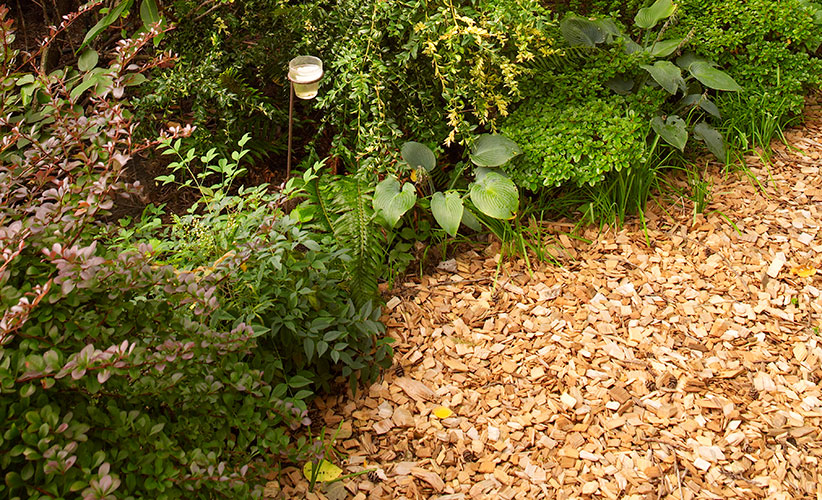
- Bark mulch: Bark mulch is another popular option that is available in a variety of colors and textures. It is a good choice for areas that need erosion control, such as slopes and hilltops.
- Pine straw: Pine straw is a light and airy mulch that is made from pine needles. It is a good choice for areas that need to be well-drained, such as around foundation plantings.
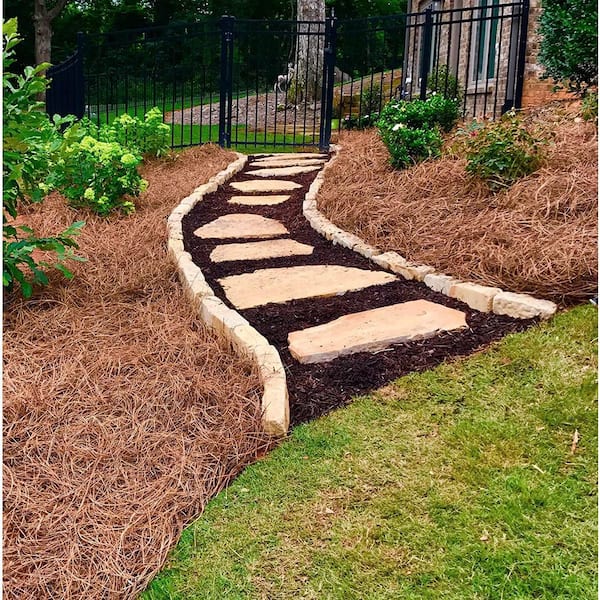
- Cypress mulch: Cypress mulch is a dark brown mulch that is made from cypress wood. It is a good choice for areas that need to be insect-resistant, such as around fruit trees.
- Rubber mulch: Rubber mulch is a synthetic mulch that is made from recycled tires. It is a good choice for areas that need to be durable and low-maintenance, such as around playgrounds and parking lots.
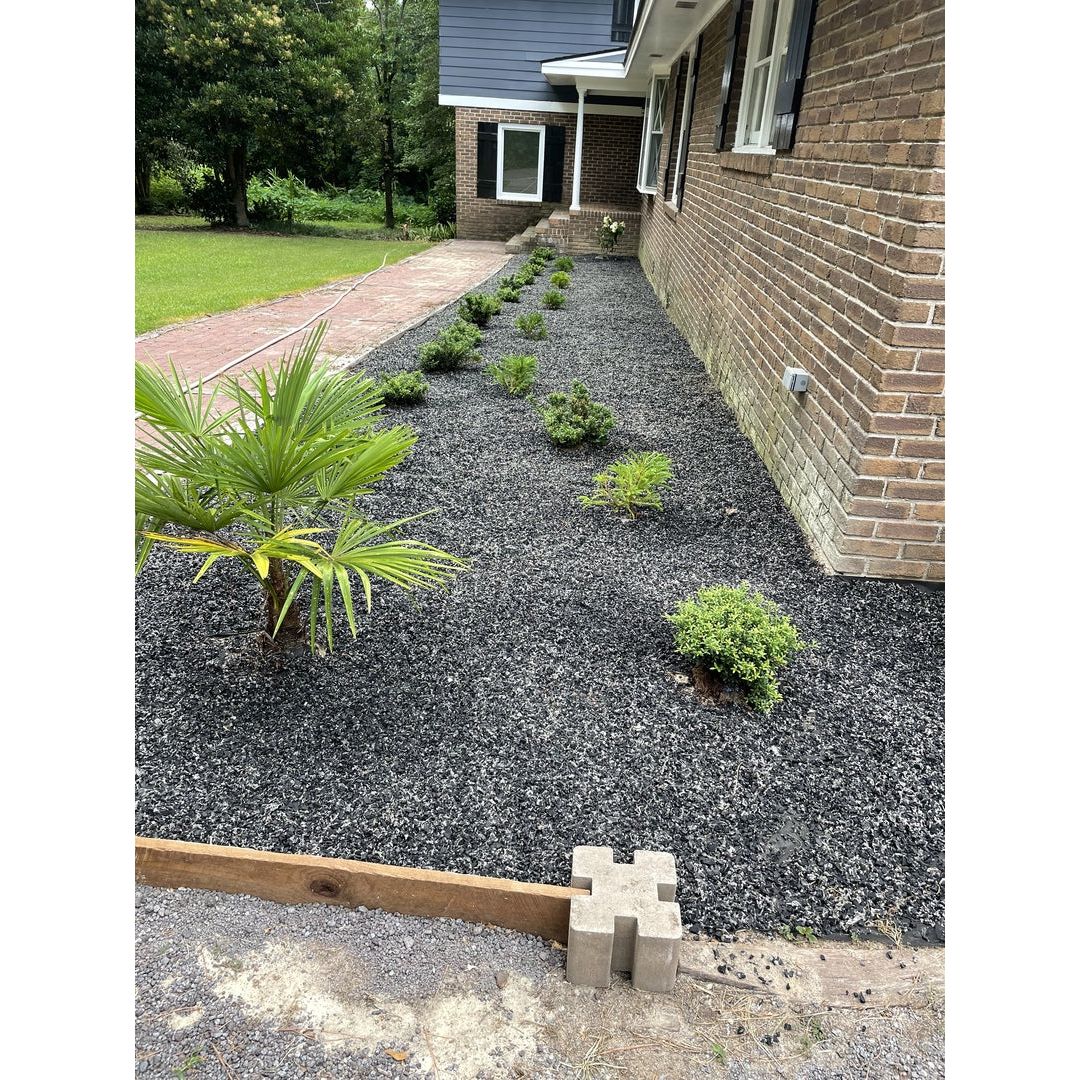
How to Spread Mulch
Once you have chosen the right type of mulch, you need to spread it properly. Here are a few tips:
- Start by removing any weeds or debris from the area where you plan to spread the mulch.
- Rake the area smooth.
- Spread the mulch evenly, leaving a 2- to 3-inch gap between the mulch and the trunks of trees and shrubs.
- Rake the mulch again to level it out.
How to Get the Most Out of Your Mulch
To get the most out of your mulch, you need to maintain it properly. Here are a few tips:
- Add new mulch every year or two to replenish the nutrients that have been lost.
- Rake the mulch regularly to remove debris and keep it looking neat.
- Reapply mulch if it has been washed away by rain or wind.
Conclusion
Mulch is a great way to improve the appearance of your yard, reduce weeds, and conserve water. By following the tips in this blog post, you can choose the right type of mulch for your needs and spread it properly. With proper maintenance, your mulch will last for years to come, providing you with many benefits.
Are you looking for a reliable source of mulch for your landscaping needs? If so, you should definitely check out Garden Wiki. Mulch Depot is a leading supplier of mulch, topsoil, stone, and gravel products. They offer a wide variety of mulches to choose from, including hardwood mulch, pine bark mulch, cedar mulch, and dyed mulch. They also offer delivery and installation services, so you can have your mulch delivered right to your door.
In addition to their wide selection of mulch products, Mulch Depot also offers a variety of other landscaping materials, such as topsoil, stone, and gravel. They also have a team of experienced landscapers who can help you with your landscaping project, from start to finish.
If you're looking for a reliable source of mulch and other landscaping materials, then you should definitely check out Mulch Depot. They have everything you need to create a beautiful and lush landscape. To learn more, visit their website at Garden Wiki.
FAQ of mulch depot
Question 1: What is mulch depot?
Answer: Mulch depot is a type of landscaping supply store that sells mulch, which is a layer of organic material that is spread around plants to help improve their health and appearance. Mulch depot stores typically offer a variety of mulches, including wood chips, bark, straw, and pine needles. They may also sell other landscaping supplies, such as soil, fertilizer, and garden tools.
Question 2: What are the benefits of using mulch?
Answer: Mulch offers a number of benefits for plants, including:
- Retaining moisture: Mulch helps to retain moisture in the soil, which can help plants to survive during dry periods.
- Suppressing weeds: Mulch can help to suppress the growth of weeds by blocking out sunlight.
- Attracting beneficial insects: Mulch can attract beneficial insects, such as earthworms and ladybugs, which can help to control pests and diseases.
- Improving soil quality: Mulch can help to improve soil quality by adding organic matter and nutrients.
- Protecting plant roots: Mulch can help to protect plant roots from extreme temperatures and pests.
Question 3: What are the different types of mulch?
Answer: There are many different types of mulch, each with its own unique benefits and drawbacks. Some of the most common types of mulch include:
- Wood chips: Wood chips are a versatile mulch that can be used in a variety of settings. They are relatively inexpensive and easy to find. However, they can be heavy and difficult to spread.
- Bark: Bark is another popular mulch that is known for its attractive appearance. It is also relatively inexpensive and easy to find. However, it can be more difficult to break down than wood chips.
- Straw: Straw is a lightweight mulch that is often used in vegetable gardens. It is relatively inexpensive and easy to find. However, it can be blown away by the wind and can attract rodents.
- Pine needles: Pine needles are a natural mulch that is known for its acidic properties. They can help to improve soil acidity and suppress the growth of weeds. However, they can be difficult to find and can be messy to spread.
- Leaf mold: Leaf mold is a type of organic mulch that is made from decaying leaves. It is relatively inexpensive and easy to find. However, it can take several months to decompose, so it is not a good choice for immediate use.
Question 4: How much mulch do I need?
Answer: The amount of mulch you need will depend on the size of the area you are mulching. A general rule of thumb is to apply 2-3 inches of mulch around plants. However, you may need to apply more mulch in areas with extreme weather conditions or if you are using a type of mulch that breaks down quickly.
Question 5: How do I apply mulch?
Answer: To apply mulch, start by clearing away any weeds or debris from the area. Then, spread the mulch evenly around the plants, leaving a 2-inch gap between the mulch and the stems of the plants. Rake the mulch smooth and water it thoroughly.
Image of mulch depot
Here are 5 different images of mulch depot from pinterest.com:
- Mulch in a wheelbarrow. This image shows a wheelbarrow full of mulch. The mulch is a light brown color and has a coarse texture. It is being used to mulch a flower bed.
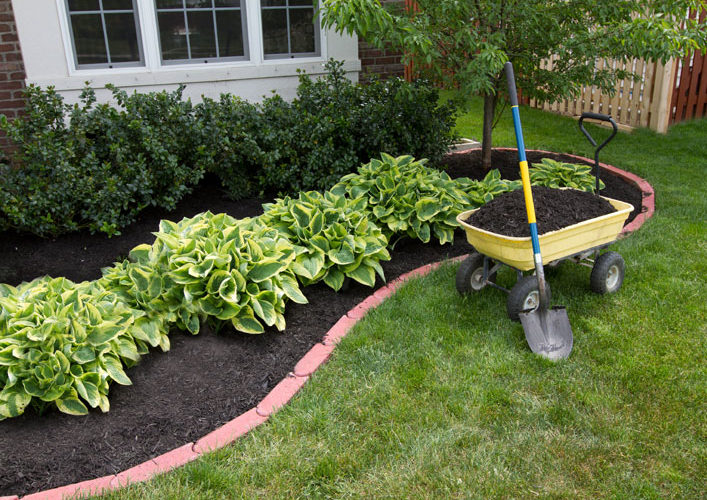
- Mulch being spread around trees. This image shows mulch being spread around a group of trees. The mulch is a dark brown color and has a fine texture. It is being used to help retain moisture in the soil and suppress weeds.
- Mulch covering a garden bed. This image shows a garden bed that is completely covered in mulch. The mulch is a light brown color and has a coarse texture. It is being used to suppress weeds and improve the drainage of the soil.

- Mulch in a bag. This image shows a bag of mulch. The mulch is a dark brown color and has a fine texture. It is being sold at a garden center.

- Mulch being used to create a pathway. This image shows mulch being used to create a pathway in a garden. The mulch is a light brown color and has a coarse texture. It is being used to create a soft and attractive surface for walking on.

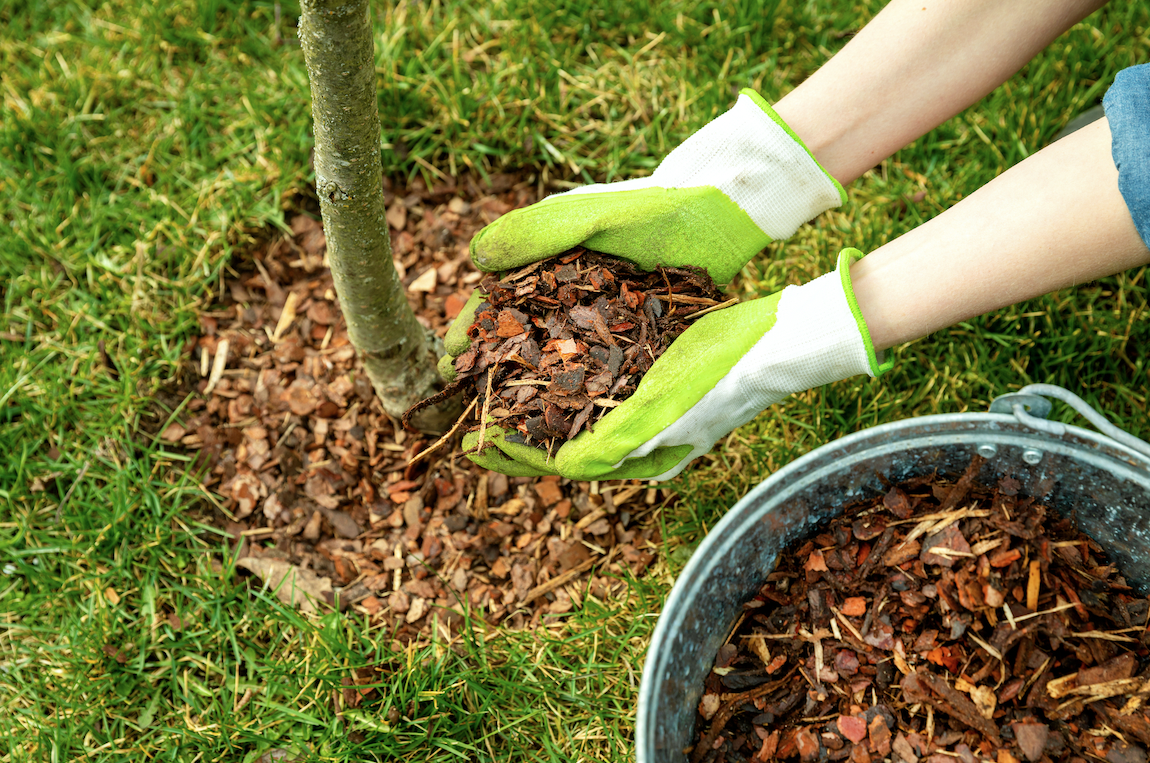
Post a Comment for "The Ultimate Guide To Mulch Depot"